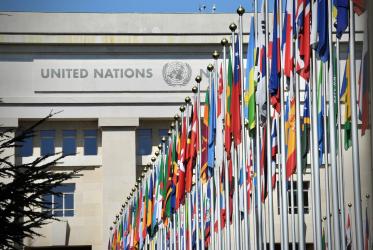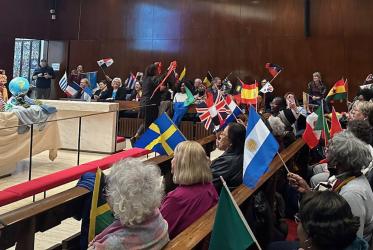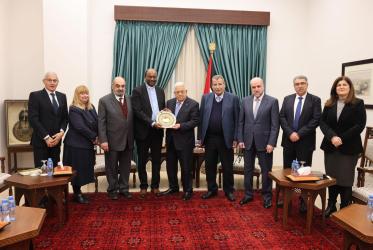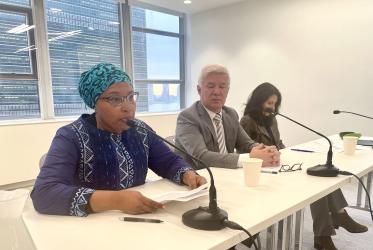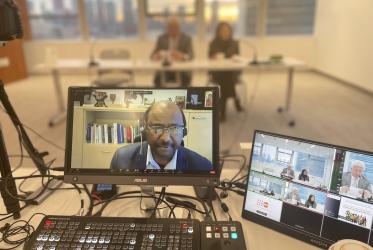Displaying 1 - 20 of 647
WCC expresses deep concern for human rights in Haiti
28 March 2024
WCC at peace dialogue table with UN Security Council in Colombia
15 February 2024
WCC submits comments on draft UN “Pact for the Future”
12 February 2024
As femicide cases rises, Kenyan religious leaders move to act
06 February 2024
In Angola, WCC takes human rights approach to obstetric fistula
01 February 2024
Thirsting for peace: Gaza's water woes in the midst of war
31 January 2024







